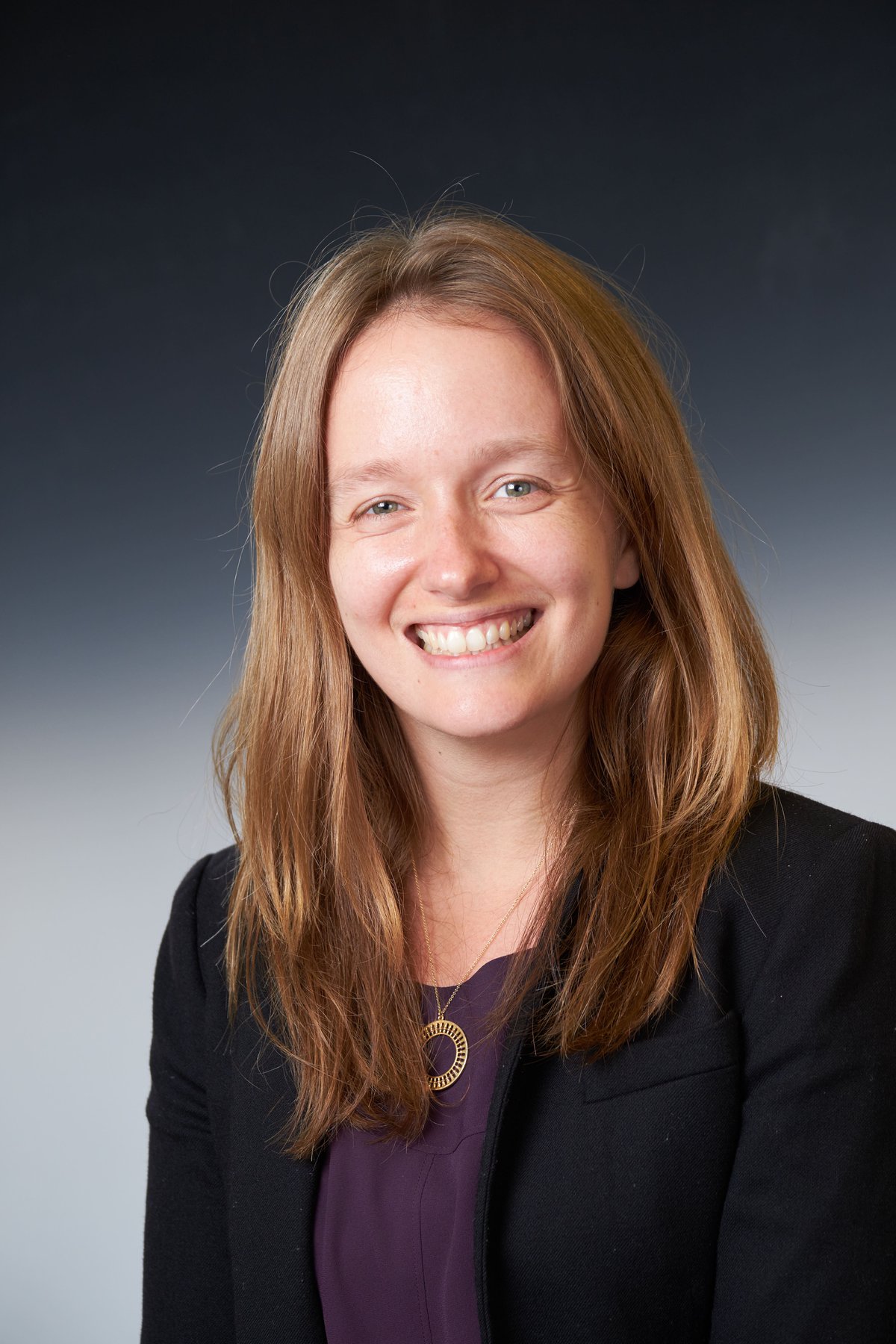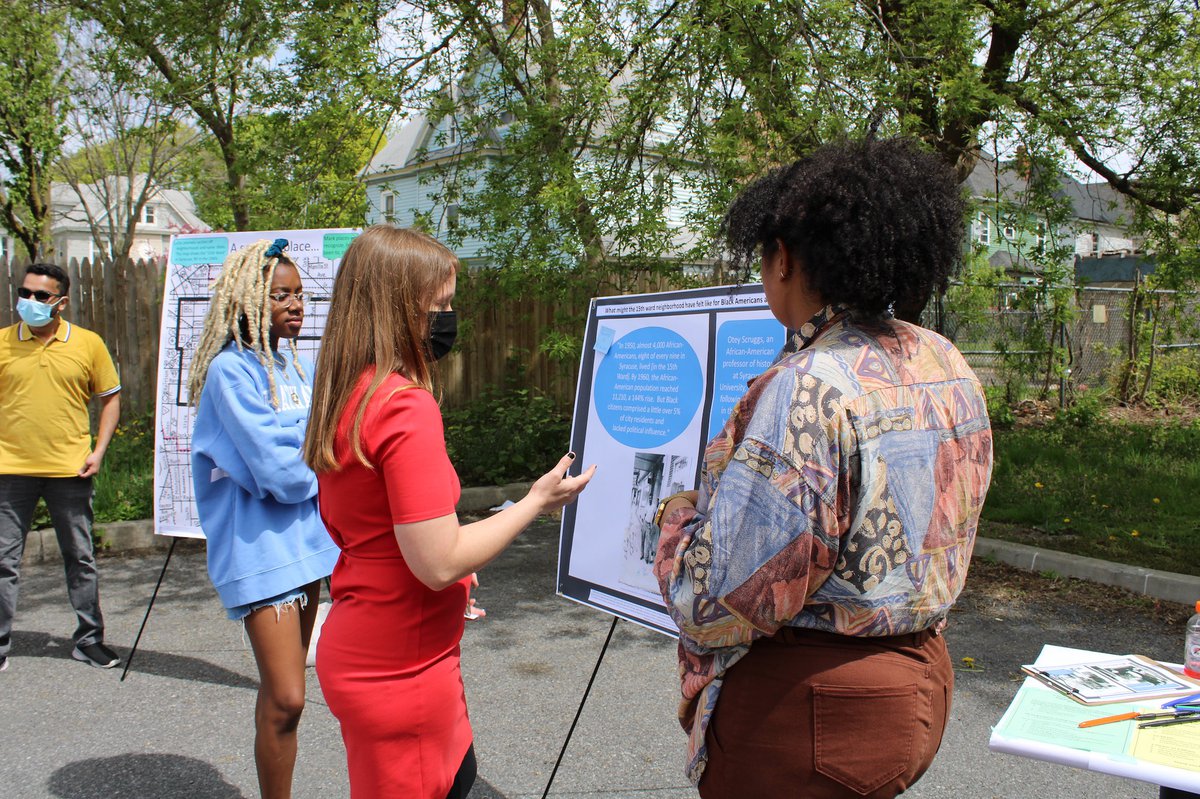Math + Heart = an Equation for Equity
Drawing on social justice to improve K-12 math outcomes.
Nicole Fonger adheres to the mantra that everyone is a math person. She’s dedicated to helping students at all levels grasp concepts that lead to meaningful learning. “I consider myself a theory builder,” says Fonger, an assistant professor of mathematics and mathematics education in Syracuse University’s College of Arts and Sciences, and School of Education. “A lot of my scholarly contributions represent different theories for how to understand and support students’ learning. But at the same time, to me, none of that would matter if it wasn’t informed by what’s happening in the classroom.”

Nicole Fonger
For Fonger, the classroom is where lives can be transformed and insights can advance new pathways of learning. It’s also where, as a community-engaged and creative scholar, she has found a home for her research. Since joining the Syracuse faculty in 2017, she has forged relationships with teachers and administrators in the Syracuse City School District (SCSD). She believes strongly in partnering with teachers to link research and practice and often uses innovative approaches—such as incorporating social justice issues to improve classroom learning and employing artwork to help explain complex issues involving race, inequity and education.
In 2020, the University awarded Fonger a CUSE grant to develop research- practice partnerships with SCSD to improve student outcomes in algebra. She involves a team of undergraduate and graduate student researchers in her work and has also received support for her research and outreach activities from the College of Arts and Sciences Engaged Humanities Network and the Central New York Humanities Corridor.
Algebra as Gatekeeper
At the heart of her interest is a desire to pair instruction with social justice objectives to improve equity in math education. Fonger’s personal outlook shifted dramatically in May 2020 when George Floyd was murdered by a police officer in Minnesota. “It really shook me to my core that I didn’t have a broad lens to see how issues of racial injustice impact all of us and also impact my work as an educator,” she says.
As an example, she cites algebra as a “gatekeeper” that students must understand to advance in STEM subjects but asks, “In a racially diverse school, why are children of color underrepresented in eighth-grade algebra?” Following what she calls a “critical self-interrogation,” she established the Antiracist Algebra Coalition.

At “A Sense of Place,” a community event last spring, Professor Nicole Fonger (in red) explains how math is helping address local issues such as neighborhood revitalization and food justice.
Fonger partnered with Syracuse community members to build the coalition and help create social justice math lessons and research-based algebra lessons that aligned with studying Black history in Syracuse. One project focused on the history of the Black community in the former 15th Ward and how the Interstate 81 construction project decades ago forever changed lives and the neighborhood where eight of every nine Black residents in the city lived in 1950. According to an S.I. Newhouse School of Public Communications project called Visualizing 81, 1,300 to 2,200 families were displaced as the city tore down 90% of the ward’s structures during I-81 construction from 1964 to 1969. Along with learning the history, the students put their algebra skills to work—finding, for instance, the equation of a line that reflected the city’s population data and using the line to chart future population trends.
A modified version of the lesson was also adapted for a Syracuse University precalculus course. “I hope that other teachers will see the power of integrating local history, current events and math,” says Fonger.
A Holistic Approach
Fonger praises Syracuse city schoolteachers for their openness in sharing the challenges they encounter—student hunger and homelessness among them—that can weigh heavily on academic performance. Since there’s no one-size-fits-all recipe for student learning, Fonger emphasizes understanding the context in which they learn and appealing to their curiosity and interests. To create an environment where students can “relate to math in personal and meaningful ways,” she says, “you have to build trusting relationships with your students.”
Last year, Fonger shared her philosophy in “A Heart-Centered Stance: Receptivity to Algebra Teachers’ and Students’ Multidimensional Experiences,” which appeared in the Journal of Humanistic Mathematics. “That paper came out of my work in local schools and observing the dedicated teachers develop strong relationships with their students that were rooted in an ethic of care,” she says.
In her own classroom, Fonger celebrates students’ success and seeks to build their confidence in their math skills. As a researcher, she continues to investigate ways to offer experiences and environments that produce positive outcomes. “You’re always asking questions,” she says. “And it’s those questions that keep motivating me.”
A longer version of this article by Jay Cox was published June 28, 2022 on Syracuse.edu.


